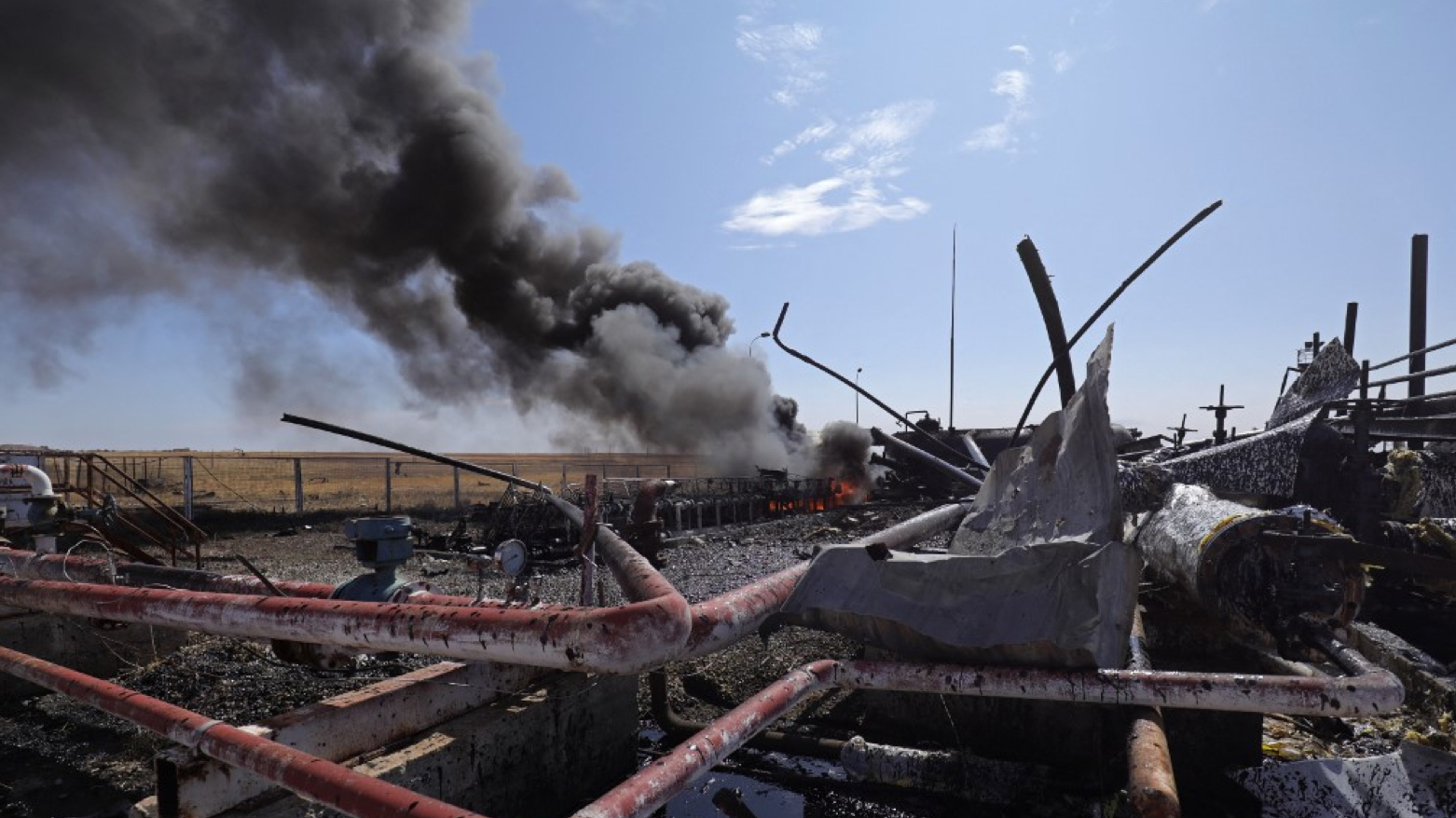Turkey should urgently stop targeting critical infrastructure in northeast Syria: HRW

ERBIL (Kurdistan 24) – Drone strikes by Turkish Armed Forces on Kurdish-held areas of northeast Syria between October 5 and 10, 2023, damaged critical infrastructure and resulted in water and electricity disruptions for millions of people, Human Rights Watch said in a report on Thursday.
#Turkish drone strikes on Kurdish-held areas of northeast #Syria have killed dozens & resulted in water & electricity disruptions for millions.
— Birgit Schwarz (@BirgitMSchwarz) October 26, 2023
Turkey's targeting of critical infrastructure is aggravating the region's already dire humanitarian crisis.https://t.co/M1qs7hl80G pic.twitter.com/Qi3vwbkX4Z
The strikes on more than 150 locations in north and east Syria in the governorates of al-Hasakeh, Raqqa, and Aleppo, killed dozens of people including civilians, and damaged civilian structures, civic groups said.
"By targeting critical infrastructure across northeast Syria, including power and water stations, Turkey has flouted its responsibility to ensure that its military actions do not aggravate the region's already dire humanitarian crisis.” said Adam Coogle, deputy Middle East director at Human Rights Watch.
“People in al-Hasakeh city and its surroundings, already facing a severe water crisis for the past four years, must now also bear the brunt of increased bombardment and destruction, exacerbating their struggle to get essential water supplies.”
Turkey launched a drone strike and air campaign on Kurdish-held areas of northern Syria after Kurdistan Workers’ Party (PKK) said it had carried out an Oct. 2 attack on the Interior Ministry in Ankara.
Read More: Turkish FM blames Ankara attack on fighters coming from Syria
Turkey’s Foreign Minister Hakan Fidan on Oct. 4, blamed the attack on fighters coming from Syria. Both Syrian Democratic Forces (SDF) and Kurdish officials in Syria have denied that fighters coming from Syria were involved in the attack.
“Ankara's attack perpetrators haven't passed through our region as Turkish officials claim, and we aren't party to Turkey's internal conflict nor we encourage escalation,” SDF Commander-in-Chief Mazloum Abdi said on Oct. 4.
Moreover, Turkish FM Fidan said infrastructure in Iraq and Syria belonging to the ‘PKK/YPG’ are 'legitimate targets' of Turkish Armed Forces.”
Furthermore, on Oct. 18, Turkish FM he also repeated that Turkey will “not hesitate to destroy the organizational infrastructure and income sources that keep the organization alive."
According to the autonomous administration, damage to infrastructure caused by attacks that took place between October 5 and 10 impacted an estimated 4.3 million people in northeast Syria with at least 18 water pumping stations and 11 power stations rendered non-operational.
Moreover, HRW also said the October 2023 strikes are also not the first time Turkey appears to have intentionally targeted civilian infrastructure. Airstrikes in November 2022 also inflicted damage on densely populated areas and critical infrastructure.
“Under the laws of war, Turkey and other parties to an armed conflict must not attack, destroy, remove, or make useless objects indispensable to the civilian population’s survival, including for water distribution and sanitation,” HRW said.
Read More: Water cut for nearly one million people in Hasakah Province since June 23: UN report
Alouk station
Furthermore, HRW also said Turkey should ensure that Alouk water station operates at optimum capacity without purposeful interruptions to water pumping and should guarantee regular access for qualified repair and maintenance teams.
Since Turkish-backed groups took control of the Alouk water station in Oct. 2019, Turkish-backed groups often have been cutting off water supply, which has impacted one million people residing in Hasaka Province.
“Turkey and other parties to the conflict should also engage with the UN’s ongoing efforts to facilitate approval of a monitoring mechanism, and adequate operational and maintenance capacity of Alouk water station and Derbasiyeh electricity substation,” HRW said.
Moreover, HRW called on the Kurdish-led autonomous administration to “refrain from purposeful electricity cuts and ensure sufficient electricity to power Alouk station.”
